May 24, 2025 | 16:28 GMT +7
May 24, 2025 | 16:28 GMT +7
Hotline: 0913.378.918
May 24, 2025 | 16:28 GMT +7
Hotline: 0913.378.918
In the past years, the technology and equipment of the coconut processing industry of Ben Tre was still rudimentary. Products processed from coconut were produced entirely by hand with a low to medium level so they had low value and it was difficult to export.
At present, thanks to the application of scientific and technological advances to production, the coconut processing industry in Ben Tre has made great progress, bringing this industry to quickly integrate with the world coconut processing industry. New processing technology has helped Ben Tre diversify and improve coconut product quality.
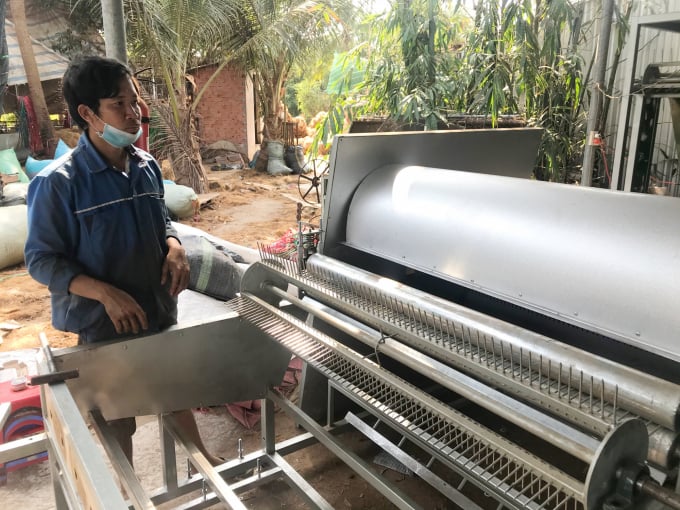
Manufacturing coir rope making machine. Photo: LHV.
Nguyen Huu Lap, former vice chairman of Ben Tre Provincial People's Committee said Ben Tre was proud of its advanced coconut processing technology. 10 years ago, Ben Tre's coconut processing technology was 10 years behind Sri Lanka's, but now, Sri Lankan experts say Ben Tre’s coconut processing technology is 10 years ahead of them.
Ben Tre’s high quality products such as such as coconut milk, coconut cream and virgin coconut oil have been exported to many countries and regions in the world.
By the first quarter of 2021, Ben Tre has nearly 74,000ha of coconuts, an increase of more than 1,500ha compared to the same period last year. In 2020, the value of industrial production of coconut reached VNĐ5,880 billion, export turnover reached nearly UD$347 million, a sharp increase compared to other years.
Indochina Coconut Company Limited in Tan An Hamlet, Tan Binh Commune, Mo Cay Bac District, the largest producer of coir mats in Ben Tre province, has a monthly revenue of about VNĐ5 billion.
“Previously, we mainly produced coir mats by manual method and productivity was low. Currently, through the application of new technology, we have exported our products to many places on the world,” said Le Thanh Tien, the company’s director.
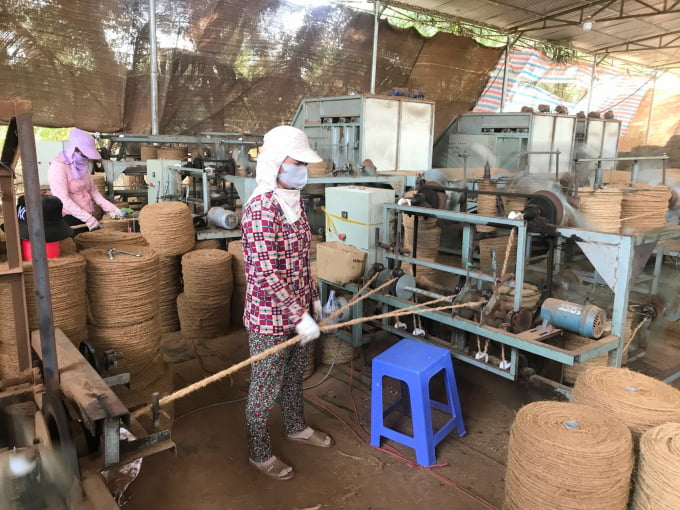
Workers produce coir ropes. Photo: Minh Dam.
Ben Tre Province currently has about 182 enterprises producing and processing coconut products, with many different types and sizes of activities. Some main industries such as processing coconut shell, copra and coconut water account for 28.52 per cent of the total number of enterprises with industrial production activities in the province, creating jobs for more than 9,500 workers.
In order to meet the market demand, over the past time, businesses have constantly innovated production technology and researched new products. After five years of implementation, the structure of coconut products is changing.
The amount of traditional products tends to decrease such as coconut candy, coir thread and desiccated copra. New items are on the rise such as coconut milk, canned coconut water and coconut oil.
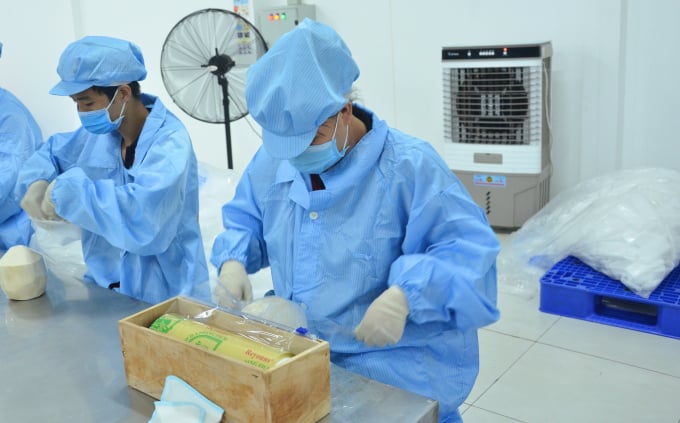
Packing fresh coconut for export. Photo: TL.
Dang Van Cu, deputy head of Department of Planning and Finance of Ben Tre provincial Department of Science and Technology said developing many new products has brought high value to the coconut processing industry and met a variety of needs. Especially, they are very friendly with environment.
Outstanding products such as pure coconut oil, coconut mask, hand sanitizer from coconut oil, paper production from coconut leafs for packaging, bags, interior decoration, art paintings and calligraphy replace plastic and nylon products. Besides, coconut nectar is very good for health. It can be processed into products such as sugar, vinegar, wine and light drinks.
Processing and consumption of coconut fruit is also increasing. Currently, the processing capacity has outstripped the production of dried coconut harvested in the province. The current capacity of the processing plants is capable of consuming 1,254 million coconuts per year. In 2020, about 584 million coconuts have been processed, equivalent to 109 per cent of the province's harvested dried coconut production.
According to Lam Van Tan, director of the provincial Department of Science and Technology, scientific research and technological development along the value chain in the province have initially made positive changes. Ben Tre has many qualified coconut seedlings that are naturally adapted to ecological conditions.
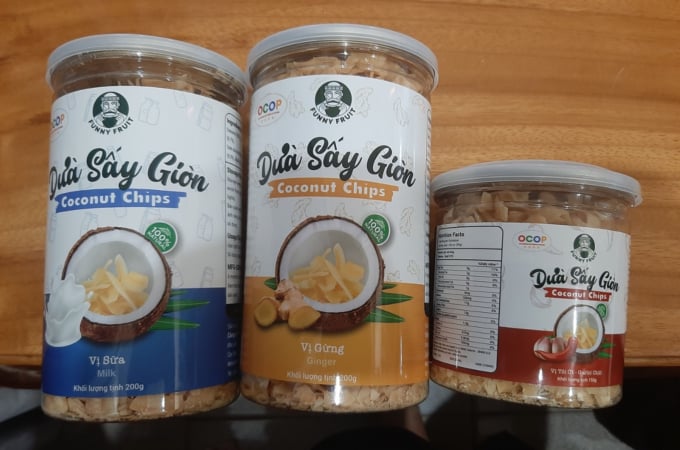
Coconut chips, one of Ben Tre coconut products. Photo: LHV.
In addition, the province has also focused on comprehensive research on the coconut value chain, especially studies on nutritional values, uses and technology transfer of coconut products processing with high economic value.
Moreover, functional branches also study the models of horizontal and vertical linkages in agriculture, coconut consumption markets, coconut products in the world, forms of co-operation and product distribution in the world market.
In the application and innovation of technological equipment, the functional agencies of Ben Tre have enlarged coconut varieties with good quality, high productivity and disease resistance.
The local businesses have also applied and replicated the coconut shelling machine, drying equipment of coir thread as well as improved and completed coconut cutting equipment.
The functional sectors have transferred equipment using direct scraping and pressing technology to produce virgin coconut oil on a small scale.
![Advanced mariculture – an inevitable trend: [1] Moving offshore](https://t.ex-cdn.com/nongnghiepmoitruong.vn/608w/files/phucpm/2025/05/18/0252-2436-nuoi-bien-6-162148_783.jpg)
(VAN) Mariculture using advanced technology and moving offshore is an inevitable trend, as nearshore areas increasingly reveal limitations.
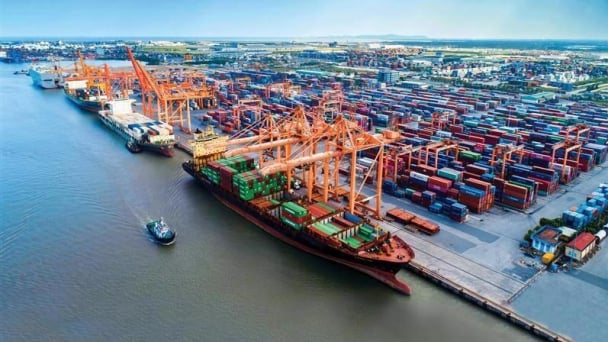
(VAN) South Korea is currently the second-largest investor in Hai Phong in terms of the number of projects (186 projects) and the largest in terms of total registered investment capital, reaching USD 14.2 billion.
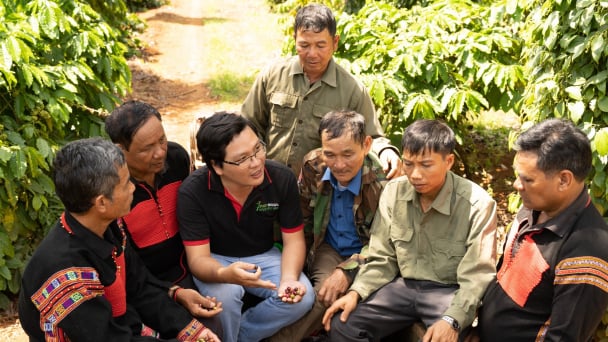
(VAN) As consumers become more environmentally conscious, legal regulations grow increasingly stringent...
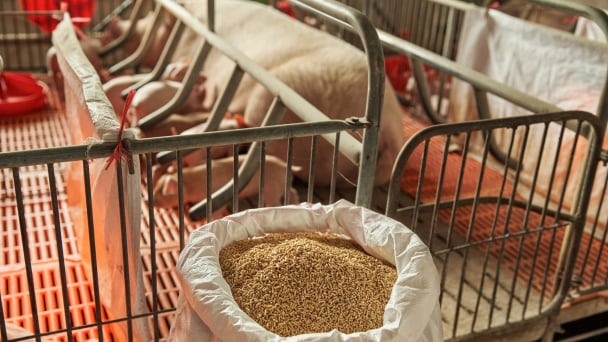
(VAN) CJ Feed&Care officially launched the FCR improvement campaign called “2025 Find Challenge Reach” in April 2025. In Vietnam, this campaign is implemented by CJ Vina Agri.
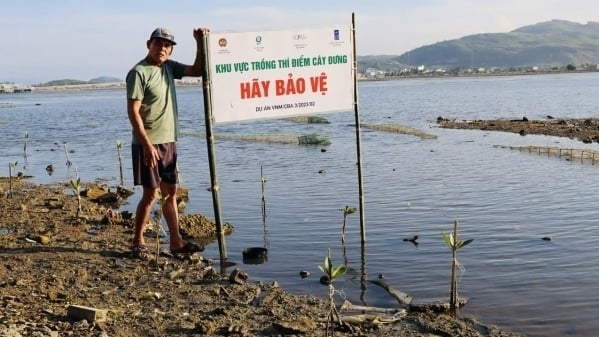
(VAN) The swamp in Pho Thanh is gradually being covered with red mangrove, creating a favorable environment for producing clean, high-quality salt.
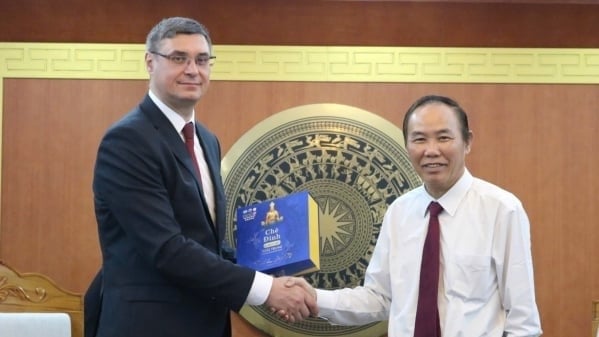
(VAN) The trade turnover of agro-forestry-fishery products is growing significantly, along with investment cooperation commitments that are opening up new development directions between Vietnam and Russia.

(VAN) Khanh Hoa is investing over 545 billion VND to develop 240 hectares of high-tech marine aquaculture in order to guarantee a consistent supply of seafood exports and achieve the USD 1 billion target.